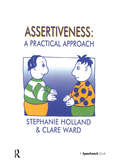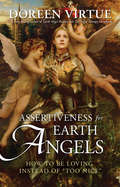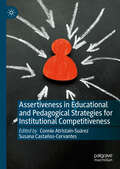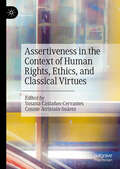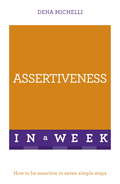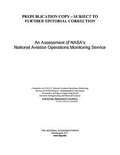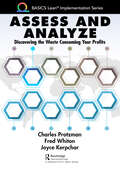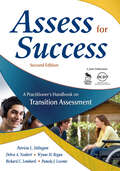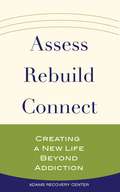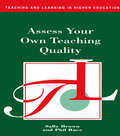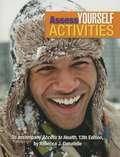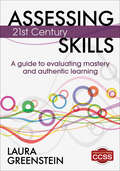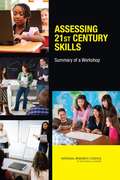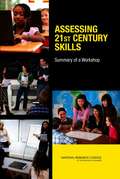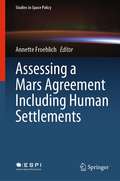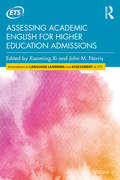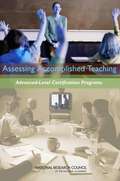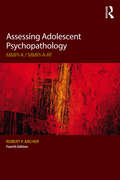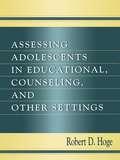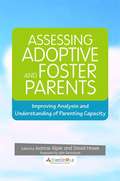- Table View
- List View
Assertiveness: A Practical Approach
by Clare Ward Stephanie HollandThis highly successful title offers an opportunity for professionals from all backgrounds to develop an understanding of assertiveness, which has been shown to be therapeutically advantageous for all kinds of client groups and can be useful in many contexts. It is a highly practical working manual from which you can apply the principles of assertiveness, both to yourself and to your clients.
Assertiveness for Earth Angels: How To Be Loving Instead Of Too Nice
by Doreen VirtueDo people take advantage of your niceness? In this groundbreaking book, Doreen Virtue teaches Earth Angels -extremely sweet people who care more about others' happiness than their own-how to maintain their inner peace and loving nature while at the same time holding boundaries. You'll discover how to overcome fears about saying no, and how to ask for what you want from those around you and from the universe. Assertiveness for Earth Angels is for anyone who wants to learn the art of speaking up in relationships and in their activism about issues related to the world. Whether you need more assertiveness with your family, on the job, or in your healing work, you'll appreciate Doreen's gentle-but-firm approach to negotiating your earthly needs in heavenly ways!
Assertiveness in Educational and Pedagogical Strategies for Institutional Competitiveness
by Connie Atristain-Suárez Susana Castaños-CervantesThis book delves into the crucial role of assertiveness in shaping effective educational and pedagogical strategies. It presents innovative research and practical techniques to empower educators, students, administrators, and institutions to enhance competitiveness in the ever-evolving educational landscape. Using in-depth research, evidence-based analysis and synthesis, and examples for use in the classroom, this book offers tools to navigate the complex landscape of assertiveness in educational contexts.
Assertiveness in the Context of Human Rights, Ethics, and Classical Virtues
by Connie Atristain-Suárez Susana Castaños-CervantesWhether in everyday disagreements, bargaining episodes, or high-stakes disputes, people typically see a spectrum of possible responses to dealing with differences with others, ranging from avoidance and accommodation to competition and aggression. When coming across such circumstances, it is crucial to advocate for oneself –our positions, to achieve personal goals, overcome difficulties, and be determined- but control aggressive impulses without harming the rights and interests of others. This book addresses assertiveness from a human rights perspective, using a mixed methods approach. It explores how assertiveness as a human right promotes human dignity and helps build more just, equitable, peaceful, and inclusive societies. With interdisciplinary contributors working in diverse fields, the collection brings together theoretical and applied research evidence on assertive rights. The collection examines assertive rights as critical factors for developing assertive behavior and as a virtue for personal development, empowerment, and thriving.
Assertiveness In A Week: How To Be Assertive In Seven Simple Steps
by Dena Michelli'A useful confidence-building tool for those whose key aim is to find their inner power' Edge OnlineBeing more assertive just got easierMuch has been spoken about the assertive communication style, not all of it complimentary! Many people confuse it with being aggressive, bamboozling others into submission and getting what you want, despite what they want. However, assertive communication is not domineering; it's just a means of saying what you mean, meaning what you say and allowing others to do the same.Taking the decision to adopt assertive behaviour will mark the beginning of a new way of life: a way of life where you make your own decisions and choices without feeling guilty, and where you are in control, not those around you.By working through some simple steps, and by testing the techniques out in a 'safe' environment, you will soon become confident in your new-found powers of assertion. You will be able to command the respect of others, achieve your personal and professional goals and raise your self-esteem.The steps to assertive behaviour you will cover in this book are:- Understand the different styles of communication and the effect they have.- Identify your own style(s) of communication.- Know your own worth and the worth of others.- Be clear about your goals.- Be prepared to learn from your successes and failures.- Be flexible, and don't expect too much.- Learn to listen.Each of the seven chapters in Assertiveness In A Week covers a different aspect of being assertive:- Sunday: Preparing the foundations- Monday: Creating winning scenarios- Tuesday: Dealing with the 'negative'- Wednesday: Creating a positive impression- Thursday: Being assertive in public- Friday: Body language- Saturday: Personal power
An Assesment of NASA's National Aviation Operations Monitoring Service
by National Research Council of the National AcademiesThe National Research Council of the National Academies was requested by the National Aeronautics and Space Administration (NASA) to perform an independent assessment of NASA's National Aviation Operations Monitoring Service (NAOMS) project, which was a survey administered to pilots from April 2001 through December 2004. The NRC reviewed various aspects of the NAOMS project, including the survey methodology, and conducted a limited analysis of the publicly available survey data. An Assessment of NASA's National Aviation Operations Monitoring Service presents the resulting analyses and findings.
Assess and Analyze: Discovering the Waste Consuming Your Profits (BASICS Lean® Implementation)
by Charles Protzman Fred Whiton Joyce KerpcharLean is about building and improving stable and predictable systems and processes to deliver to customers high-quality products/services on time by engaging everyone in the organization. Combined with this, organizations need to create an environment of respect for people and continuous learning. It’s all about people. People create the product or service, drive innovation, and create systems and processes, and with leadership buy-in and accountability to ensure sustainment with this philosophy, employees will be committed to the organization as they learn and grow personally and professionally. Lean is a term that describes a way of thinking about and managing companies as an enterprise. Becoming Lean requires the following: the continual pursuit to identify and eliminate waste; the establishment of efficient flow of both information and process; and an unwavering top-level commitment. The concept of continuous improvement applies to any process in any industry. Based on the contents of The Lean Practitioner’s Field Book, the purpose of this series is to show, in detail, how any process can be improved by utilizing a combination of tasks and people tools and introduces the BASICS Lean® concept. The books are designed for all levels of Lean practitioners and introduce proven tools for analysis and implementation that go beyond the traditional point kaizen event. Each book can be used as a stand-alone volume or used in combination with other titles based on specific needs. Each book is chock-full of case studies and stories from the authors’ own experiences in training organizations who have started or are continuing their Lean journey of continuous improvement. Contents include valuable lessons learned and each chapter concludes with questions pertaining to the focus of the chapter. Numerous photographs enrich and illustrate specific tools used in Lean methodology. Assess and Analyze: Discovering the Waste Consuming Your Profits explores the tools used to assess and analyze the process. It starts off with Learning to See waste and follows with the three analysis tools: mapping the product flow, documenting the full work of the operator, and implementing SMED or changeover reduction and closes with exploring Lean and change management.
Assess Current Challenges and Opportunities: The Role of Assessment in Successful Negotiation
by Hallam Movius Richard S. Tedlow Heather Beckham Lawrence SusskindThis chapter explains the current state of play in an organization in terms of negotiation issues, challenges, stakeholders, processes and outcomes. The authors' program introduces a criteria assessment key that will help organizations develop their own successful negotiation practice. This chapter was originally published as chapter 3 of "Built to Win: Creating a World-Class Negotiating Organization."
Assess for Success: A Practitioner′s Handbook on Transition Assessment
by Sitlington, Patricia L., Neubert, Debra A., Begun, Wynne H., Lombard, Richard C. and Leconte, Pamela J."Makes a distinct contribution to the field, addressing a critical area of responsibility for schools under IDEA 2004."—Gary Clark, Professor of Special EducationUniversity of Kansas"Will become a valuable resource to many stakeholders."—Jeanne Repetto, Professor of Special EducationUniversity of FloridaHelp students with disabilities transition successfully into adult life!Assisting students with disabilities in planning for their future as adults offers both challenges and unique opportunities for educators. An authoritative guidebook for Individualized Education Program (IEP) and Individualized Transition Planning teams, Assess for Success, Second Edition, helps students, special educators, and families define appropriate goals—including postsecondary education and employment choices—for the transition to adult life. New resources in the revised edition emphasize practical transition assessment techniques with sample forms for community assessment, job analysis, and vocational training analysis. Written by a team of highly respected authors, and aligned with the reauthorization of IDEA 2004, the text discusses self-determination and career development, and demonstrates how to:Utilize methods for transition assessmentUse assessment outcomes in IEP developmentCollaborate effectively with team members and other participantsMatch students to appropriate transition environmentsStudents with disabilities can successfully transition into adult life when they are supported by solid planning, realistic goals, and a team of caring individuals who want to ensure the best possible outcome.
Assess, Rebuild, Connect: Creating a New Life Beyond Addiction (The Adams Recovery Center series #3)
by Adams Recovery CenterAssess, Rebuild, Connect is the comprehensive resource that guides individuals and their loved ones through the three phases of addiction recovery and into a life of sustained sobriety.Featuring reflection questions and room for written responses, plus real-life success stories to inspire and encourage, Assess, Rebuild, Connect provides a trusted companion through pre-treatment, treatment, and aftercare.Readers will be empowered to:ASSESS their issues and obstacles and set realistic expectations about the journey ahead.REBUILD the most important parts of their lives: trust in themselves and in the process; self-respect and confidence; and coping skills for tasks such as finding a safe place to life, getting a job, or returning to school. CONNECT with the real world outside of addiction, repairing relationships and managing the challenges of maintaining lifelong sobriety.Based on decades of clinical experience, Assess, Rebuild, Connect is a down-to-earth tool for creating a new life beyond addiction—the life everyone deserves!
Assess Your Own Teaching Quality (Teaching and Learning in Higher Education)
by Phil Race Sally BrownContaining over 100 checklist grids of performance indicators on a wide range of teaching elements, this guide allows teachers to assess their own work, uncovering strengths and weaknesses. The text can also be used for formal peer assessment or as a basis for gathering feedback.
Assess Yourself Activities For Access To Health (Thirteenth Edition)
by Rebecca J. DonatelleLong available online, now these popular self assessments also come in print. This supplement allows instructors who don't assign the popular Assess Yourself activities online to still assign them as traditional homework. Assess Yourself questionnaires and activities help students evaluate their health habits and facilitate behavior change.
Assessing 21st Century Skills: A Guide to Evaluating Mastery and Authentic Learning
by Laura M. GreensteinGo beyond traditional paper-and-pencil tests! How can you measure student mastery of 21st century skills like creativity, problem solving, and use of technology? Laura Greenstein provides a framework and practical ideas for using authentic learning experiences and rigorous assessment strategies to engage today’s students. With numerous rubrics and checklists, a step-by-step model for developing your own classroom assessments, a lesson planning template, and sample completed lesson plans, this book discusses how to teach and assess: Thinking skills: critical thinking, problem solving, creativity, and metacognition Actions: communication, collaboration, digital and technological literacy Living skills: citizenship, global understanding, leadership, college and career readiness
Assessing 21st Century Skills: Summary of a Workshop
by Judith Anderson KoenigThe routine jobs of yesterday are being replaced by technology and/or shipped off-shore. In their place, job categories that require knowledge management, abstract reasoning, and personal services seem to be growing. The modern workplace requires workers to have broad cognitive and affective skills. Often referred to as "21st century skills," these skills include being able to solve complex problems, to think critically about tasks, to effectively communicate with people from a variety of different cultures and using a variety of different techniques, to work in collaboration with others, to adapt to rapidly changing environments and conditions for performing tasks, to effectively manage one's work, and to acquire new skills and information on one's own. The National Research Council (NRC) has convened two prior workshops on the topic of 21st century skills. The first, held in 2007, was designed to examine research on the skills required for the 21st century workplace and the extent to which they are meaningfully different from earlier eras and require corresponding changes in educational experiences. The second workshop, held in 2009, was designed to explore demand for these types of skills, consider intersections between science education reform goals and 21st century skills, examine models of high-quality science instruction that may develop the skills, and consider science teacher readiness for 21st century skills. The third workshop was intended to delve more deeply into the topic of assessment. The goal for this workshop was to capitalize on the prior efforts and explore strategies for assessing the five skills identified earlier. The Committee on the Assessment of 21st Century Skills was asked to organize a workshop that reviewed the assessments and related research for each of the five skills identified at the previous workshops, with special attention to recent developments in technology-enabled assessment of critical thinking and problem-solving skills. In designing the workshop, the committee collapsed the five skills into three broad clusters as shown below: Cognitive skills: nonroutine problem solving, critical thinking, systems thinking Interpersonal skills: complex communication, social skills, team-work, cultural sensitivity, dealing with diversity Intrapersonal skills: self-management, time management, self-development, self-regulation, adaptability, executive functioning Assessing 21st Century Skills provides an integrated summary of the presentations and discussions from both parts of the third workshop.
Assessing 21st Century Skills: Summary of a Workshop
by The National Academy of SciencesThe routine jobs of yesterday are being replaced by technology and/or shipped off-shore. In their place, job categories that require knowledge management, abstract reasoning, and personal services seem to be growing. The modern workplace requires workers to have broad cognitive and affective skills. Often referred to as "21st century skills," these skills include being able to solve complex problems, to think critically about tasks, to effectively communicate with people from a variety of different cultures and using a variety of different techniques, to work in collaboration with others, to adapt to rapidly changing environments and conditions for performing tasks, to effectively manage one's work, and to acquire new skills and information on one's own. The National Research Council (NRC) has convened two prior workshops on the topic of 21st century skills. The first, held in 2007, was designed to examine research on the skills required for the 21st century workplace and the extent to which they are meaningfully different from earlier eras and require corresponding changes in educational experiences. The second workshop, held in 2009, was designed to explore demand for these types of skills, consider intersections between science education reform goals and 21st century skills, examine models of high-quality science instruction that may develop the skills, and consider science teacher readiness for 21st century skills. The third workshop was intended to delve more deeply into the topic of assessment. The goal for this workshop was to capitalize on the prior efforts and explore strategies for assessing the five skills identified earlier. The Committee on the Assessment of 21st Century Skills was asked to organize a workshop that reviewed the assessments and related research for each of the five skills identified at the previous workshops, with special attention to recent developments in technology-enabled assessment of critical thinking and problem-solving skills. In designing the workshop, the committee collapsed the five skills into three broad clusters as shown below: Cognitive skills: nonroutine problem solving, critical thinking, systems thinking Interpersonal skills: complex communication, social skills, team-work, cultural sensitivity, dealing with diversity Intrapersonal skills: self-management, time management, self-development, self-regulation, adaptability, executive functioning Assessing 21st Century Skillsprovides an integrated summary of the presentations and discussions from both parts of the third workshop.
Assessing a Company's Future Financial Health
by Thomas R. PiperThe case provides students with (1) an understanding of the essence of long-term financial health; (2) familiarity with the calculation and meaning of various financial ratios; and (3) an understanding of the influence of a company's operating and competitive characteristics on its investment in various type assets, on the profitability of these investments, and on the financial structure of its balance sheet. The case also allows a discussion of (1) the incomplete and lagging nature of financial measures; (2) the influence of financial measures on behavior; and (3) the reality that financial analysis often results in better, more focused questions to be asked of management, not conclusive answers.
Assessing a Mars Agreement Including Human Settlements (Studies in Space Policy #30)
by Annette FroehlichThis book is dedicated to the nascent discussion of the legal aspects of human exploration and possible settlement of Mars, and provides fresh insights and new ideas in two key areas. The first one revolves around the broader aspects of current space law, such as intellectual property rights in outer space, the legal implications of contact with extra-terrestrial intelligence, legal considerations around the freedom of exploration and use, and the International Space Station agreement as a precedent for Mars. The second one focuses on the creation and management of a new society on Mars, and includes topics such as human reproduction and childbirth, the protection of human rights in privately-funded settlements, legal aspects of a Martian power grid, and criminal justice on the red planet. With multiple national space agencies and commercial enterprises focusing on Mars, it is more than likely that a human presence will be established on the red planet in the coming decades. While the foundation of international space law, laid primarily by the Outer Space Treaty, remains the framework within which humans will engage with Mars, new and unforeseen challenges have arisen, driven particularly by the rapid pace of technological advancement in recent years. To ensure that space law can keep up with these developments, a new scholarly work such as the present one is critical. By bringing together a number of fresh international perspectives on the topic, the book is of interest to all scholars and professionals working in the space field.
Assessing a Strategy's Fit with a Pattern: Pattern-Based Analysis of Disruptive Ideas
by Joseph V. Sinfield Scott D. Anthony Mark W. Johnson Elizabeth J. AltmanSuccessfully creating new growth innovations requires becoming an expert at recognizing and using patterns to assess and shape ideas. This chapter explains in detail how to assess the degree to which a strategy matches a pattern common to successful innovations.
Assessing Academic English for Higher Education Admissions
by Xiaoming XiAssessing Academic English for Higher Education Admissions is a state-of-the-art overview of advances in theories and practices relevant to the assessment of academic English skills for higher education admissions purposes. The volume includes a brief introduction followed by four main chapters focusing on critical developments in theories and practices for assessing reading, listening, writing, and speaking, of which the latter two also address the assessment of integrated skills such as reading-writing, listening-speaking, and reading-listening-speaking. Each chapter reviews new task types, scoring approaches, and scoring technologies and their implications in light of the increasing use of technology in academic communication and the growing use of English as a lingua franca worldwide. The volume concludes with recommendations about critical areas of research and development that will help move the field forward. Assessing Academic English for Higher Education Admissions is an ideal resource for researchers and graduate students in language testing and assessment worldwide.
Assessing Accomplished Teaching: Advanced-Level Certification Programs
by National Research Council of the National AcademiesThe mission of the National Board for Professional Teaching Standards (NBPTS) is to establish “high and rigorous standards for what teachers should know and be able to do, to certify teachers who meet those standards, and to advance other education reforms for the purpose of improving student learning in American schools.” In response to a request from the U.S. Congress, the National Research Council developed a framework for evaluating programs that award advanced-level teacher certification and applied that framework in an evaluation of the impacts of the NBPTS. Specifically, this book addresses the impacts on students, teachers, and the educational system in this country. Assessing Accomplished Teaching finds that teachers who earn board certification are more effective at improving their students’ achievement than other teachers, but school systems vary greatly in the extent to which they recognize and make use of board-certified teachers. Many of the questions on the evaluation framework could not be answered because the data have not been collected, and the report makes recommendations for the kinds of research that are needed to fully evaluate the impacts of board certification by the NBPTS.
Assessing Accounting Risk
by David F. HawkinsDescribes a framework that financial analysts can use to assess the likelihood of accounting misstatements in financial statements.
Assessing Accuracy and Reliability: A Note Based on Approaches Used in National Accounts and Balance of Payments Statistics
by Carol S. Carson Lucie LalibertéA report from the International Monetary Fund.
Assessing Adolescent Psychopathology: MMPI-A / MMPI-A-RF, Fourth Edition
by Robert P. ArcherAssessing Adolescent Psychopathology: MMPI-A / MMPI-A-RF, Fourth Edition provides updated recommendations for researchers and clinicians concerning the MMPI-A, the most widely used objective personality test with adolescents, and also introduces the MMPI-A-Restructured Form (MMPI-A-RF), the newest form of the MMPI for use with adolescents. Further, this fourth edition includes comprehensive information on both MMPI forms for adolescents, including descriptions of the development, structure, and interpretive approaches to the MMPI-A and the MMPI-A-RF. This text provides extensive clinical case examples of the interpretation of both tests, including samples of computer based test package output, and identifies important areas of similarities and differences between these two important tests of adolescent psychopathology.
Assessing Adolescents in Educational, Counseling, and Other Settings
by Robert D. HogeAdolescence is a distinct period of development that presents a number of special challenges. This fact has important implications for professionals selecting and administering assessment procedures and interpreting the data they yield, yet assessment texts have focused on adults or children and devoted minimal attention to adolescents. This book constitutes the first up-to-date and practical guide to the effective psychological assessment of adolescents. Throughout, the author's emphasis is on standardized instruments. Their use, he argues, provides more valid information about individuals, leads to better treatment or placement decisions, and contributes to the more efficient management of organizational resources than does reliance on clinical interviews and judgment alone. Assessing Adolescents in Educational, Counseling, and Other Settings will be welcomed by all those professionally involved in the assessment of adolescents--psychologists, psychiatrists, social workers, child care agency staff, and educators--as well as by those who must make decisions based on their assessments--school principals, youth court judges, and managers of residential treatment facilities among others. Developmental researchers will also find this review of available standardized tools helpful in their work.
Assessing Adoptive and Foster Parents: Improving Analysis and Understanding of Parenting Capacity
by Jon Baylin David Howe John Simmonds Daniel Hughes Joanne Alper Kim Golding Ben Gurney-SmithAssessing prospective adoptive and foster parents is an extremely complex task, and one that happens within a pressurised time frame. Currently, assessments draw substantially on interviews with prospective adopters and foster carers. Too often, they generate a lot of information but lack meaningful analysis and understanding of parenting capacity. Children with histories of trauma, loss and hurt need to join families in which parents exhibit the ability to be good at relationships, able to manage their own stress and bond with the child in their care. In this book, leading experts including Dan Hughes, Jonathan Baylin, Kim Golding and Julie Selwyn combine the latest findings from neuroscience with research on what makes good assessments. Together, they provide guidance and recommend tools for making thorough, analytical and effective assessments which will ensure the best possible chance of placement success. Assessing Adoptive and Foster Parents is an invaluable source of knowledge and practice guidance for social workers undertaking assessments of parenting capacity of children who have experienced neglect or trauma.
